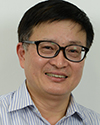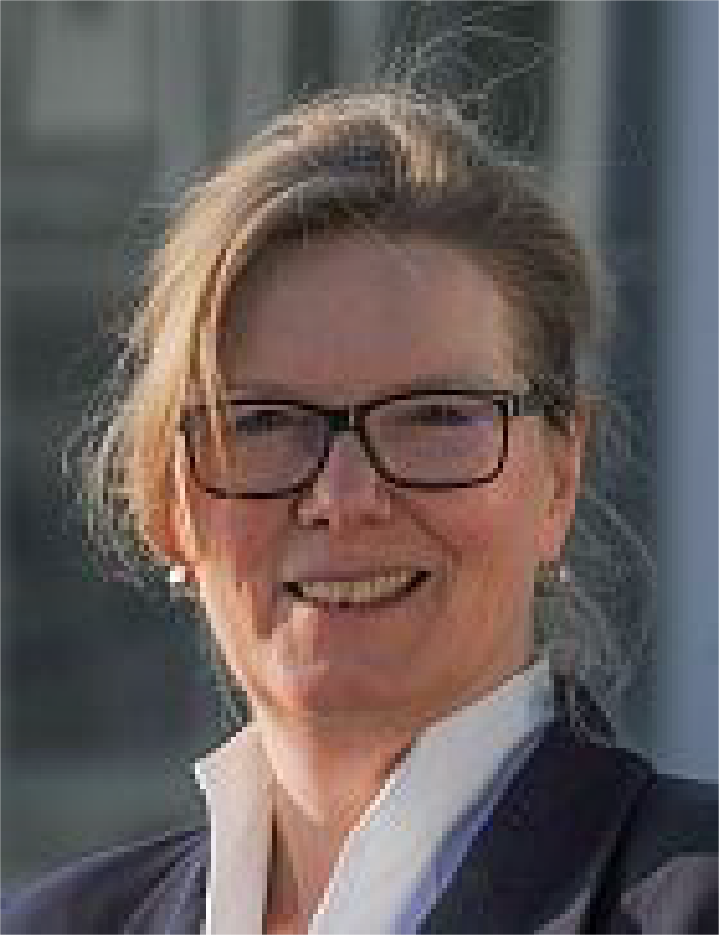Distinguished Lecturers
To request a Distinguished Lecturer (DL) for your next event, complete the DL Application Form.

Hong Kong
Prof. George G.Q. Huang is Chair Professor and Head of Department in Department of Industrial and Manufacturing Systems Engineering, The University of Hong Kong. He gained his BEng and PhD in Mechanical Engineering from Southeast University (China) and Cardiff University (UK) respectively. He has conducted research projects in the field of Physical Internet (Internet of Things) for Manufacturing and Logistics with substantial government and industrial grants. He has published extensively including over two hundred refereed journal papers in addition to over 200 conference papers and ten monographs, edited reference books and conference proceedings. His research works have been widely cited in the relevant field. He serves as associate editors and editorial members for several international journals. He is a Chartered Engineer (CEng), a fellow of ASME, HKIE, IET and CILT, and member of IIE.
Talk # 1
Breaking Manufacturing Complexity and Uncertainty through Smart CPS Visibility and Traceability
The power of information sharing in managing “bull-whip” effects in a supply chain and between work units has been known well, but a cost-effective enabling mechanism is yet to be developed. This talk proposes a trilogy of creating, establishing and utilizing information visibility and traceability to substantially reduce complexity and uncertainty to a level that the breakthrough towards next-generation manufacturing is achieved.
Talk # 2
Through-Bound Manufacturing - "Zero Warehousing" Smart Manufacturing
Cyber-Physical Systems provide visbility and traceability from real-time data analytics. This talk discusses a new “through-bound” factory using visbility and traceability to hedge the time risk in inventory management instead of using expensive warehousing space.

Munich, Germany
Prof. Birgit Vogel-Heuser is Chair Professor of Automation and Information Systems in Mechanical Engineering, Technical University of Munich. She received her Dipl. Ing. degree in electrical engineering in 1987 and her Dr.-Ing. degree in mechanical engineering in 1990 from the RWTH Aachen, Germany. She was involved in industrial automation with the machine and plant manufacturing industry for nearly ten years, including a position as technical director for the Siempelkamp Group. After various professorship positions in Hagen, Wuppertal, and Kassel, she was appointed to the Chair of Automation and Information Systems at TUM in 2009. Currently, she is in the area of systems and software engineering as well as in the modeling of distributed and reliable embedded systems. Especially, her research foci are put on the challenges that result from the increasing demand to produce customer-specific products in the plant manufacturing domain. Engineering and education on the hybrid process and heterogeneous distributed and intelligent systems using a human-centered approach are also included in her research area. Prof.Vogel-Heuser has over 500 scientific publications and 72 book chapters and she is also an editor of the handbook Industrie 4.0. She is a Senior Member of the IEEE and a member of the National Academy of Science and Engineering (acatech). She serves as the editor of IEEE Transactions on Automation Science and Engineering (IEEE T-ASE) and IFAC Journal of Systems and Control. She was the Keynote speaker of the International Conference on Advanced Robotics and Intelligent Systems (ARIS 2020). She is also a member of various advisory boards, including the advisory board of the VDI/VDE-GMA and the board of trustees of the German Museum.
Talk # 1
Enabling and managing self-x manufacturing systems (for Industry 4.0)
As manufacturing systems need to be more flexible not only due to changed products but also due to crises and short-term changes in supply chains, a mechanism is required to enable this flexibility. Multi-agent systems will be introduced as a successful design paradigm to enable and manage self-x manufacturing systems. The talk will introduce the concept, industrial applications on the field level, and criteria for deciding where to run MAS.
Talk # 2
Forever young automated Production Systems - How can evolution of control software be managed and enable flexibility of automated production systems
To enable the flexibility of long-living automated Production Systems that are already in operation, changes to the control software are often the only feasible option. Consequently, it is necessary to manage variants and versions of control software in relation to its mechanical and electrical hardware and automation platforms of every machine or plant delivered for decades. To facilitate updates in the future, the legacy code should be refactored to achieve a higher degree of modularity and reuse. The talk will introduce the concepts of analyzing legacy code, measuring modularity and code quality, and the challenges of applying product line approaches to control software of automated Production Plants.